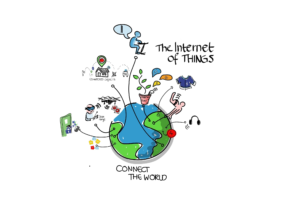Exploring the Benefits of Blockchain Beyond Cryptocurrencies

Exploring the Benefits of Blockchain Beyond Cryptocurrencies is no longer a niche topic. Its decentralized and secure nature is rapidly expanding beyond digital currencies, impacting sectors like supply chain management, voting systems, and digital identity verification. Imagine a world where transparency and efficiency are paramount in everything from tracking your food from farm to table to safeguarding your digital identity—this is the promise of blockchain, and this exploration unveils the transformative power of blockchain’s diverse applications.
Understanding the Foundation of Blockchain's Potential
1.1 What is Blockchain?
Blockchain technology, at its core, is a decentralized, immutable ledger. It facilitates the recording and verification of transactions across a distributed network of computers. This eliminates the need for a central authority and fosters transparency and security. This core principle makes it a potent tool not only for cryptocurrency but also for a wide range of applications requiring security, accountability, and efficiency.
1.2 The Rise of Blockchain's Applications
While cryptocurrencies like Bitcoin and Ethereum garnered significant early attention, the true power of blockchain lies in its flexibility. The inherent transparency, security, and efficiency of blockchain technology have led to a surge in experimentation and development of use cases outside the realm of cryptocurrency. This expansion signifies a shift from treating blockchain solely as a digital currency platform to appreciating it as a disruptive technology with the potential to revolutionize many industries.
Revolutionizing Supply Chain Management
2.1 Enhanced Transparency and Traceability
Blockchain allows for the transparent and tamper-proof tracking of goods throughout the supply chain. Every step, from origin to consumer, can be recorded and verified, thus promoting authenticity and reducing fraud. This is particularly important in sectors like food production and pharmaceuticals, where the traceability of products is crucial for ensuring quality and safety. For example, a food company can use blockchain to track a specific batch of oranges from the orchard to the grocery store, guaranteeing its origin and quality.
2.2 Streamlined Processes and Reduced Costs
With a shared, immutable record of transactions, supply chains can become significantly more efficient. Delays and errors are minimized as information is shared instantly and accurately across the network. This streamlining of processes translates into significant cost savings and increased operational efficiency, potentially making supply chains more sustainable in the long run.
Related Post : How Biotech Is Pushing the Boundaries of Medicine and Healthcare
Fortifying Digital Identity
3.1 Secure and Decentralized Verification
Blockchain can provide a secure and decentralized platform for managing digital identities. By using cryptographic principles, individuals can control their own digital identities and share verifiable credentials with others securely. This reduces the risk of identity theft and fraud.
3.2 Verifiable Credentials and Enhanced Security
Imagine a system where your educational qualifications or professional certifications are instantly and securely verifiable. Blockchain-based solutions can create this by issuing and validating verifiable credentials. This innovation can reduce the need for intermediaries and create a more streamlined system for verifying credentials.
Transforming Voting Systems
4.1 Increased Transparency and Security
Blockchain can enhance the security and transparency of voting systems. By recording votes on a secure, decentralized ledger, the integrity of the process can be ensured. The immutable nature of blockchain helps prevent election fraud and increase public trust.
4.2 Empowering Citizens with Verifiable Results
In essence, blockchain facilitates a more transparent and secure environment for voting, providing verifiable results for greater voter confidence. Imagine a system where every vote is recorded on an immutable ledger, guaranteeing the integrity of the results. This is a potential application of blockchain that has the potential to radically improve election processes in the future.
Enhancing Financial Transactions
5.1 Secure and Efficient Cross-border Payments
Blockchain facilitates secure and efficient cross-border payments by eliminating the need for intermediaries and reducing transaction fees. This is highly beneficial for individuals and businesses operating globally.
5.2 Smart Contracts for Automated Transactions
Smart contracts can automate transactions based on predefined conditions, enabling greater efficiency and reducing the risk of human error. These self-executing contracts can be programmed to automatically transfer funds or perform other actions when specific conditions are met. This can be revolutionary for various industries.
Blockchain in the Healthcare Industry
6.1 Secure Patient Records
Blockchain can provide a secure, encrypted method of storing and sharing patient data. This approach to patient record management can be beneficial for streamlining access and reducing data breaches. In other words, healthcare is another promising application area for blockchain to improve patient safety and care.
6.2 Streamlining Drug Tracking
The pharmaceutical supply chain can also be enhanced with blockchain technology, ensuring the authenticity and provenance of medications from the manufacturer to the patient. This application of blockchain promises to minimize counterfeiting and improve the overall security of the medical industry.
Emerging Trends in Blockchain Applications
7.1 The Future of Decentralized Finance
Decentralized finance (DeFi) is poised to reshape financial systems by creating alternative, permissionless platforms for lending, borrowing, and investing. This approach is highly promising to improve global financial inclusion.
7.2 The Role of Blockchain in Data Management
Blockchain is quickly becoming an integral part of data management by streamlining the process of handling data integrity and facilitating easier collaboration.
Conclusion:
Blockchain technology extends far beyond its initial applications in the cryptocurrency realm. Its secure and decentralized nature holds the promise of revolutionizing diverse sectors—from supply chains to healthcare, and finance to voting systems. Understanding these applications will be crucial for stakeholders to explore how blockchain technology can be integrated into their operations and improve their bottom line and efficiency.
In conclusion, blockchain technology offers a wealth of benefits beyond its cryptocurrency applications. From supply chain management to voting systems, and even digital identity verification, blockchain’s decentralized and secure nature presents exciting opportunities for innovation across various sectors. By understanding these diverse applications, businesses and individuals can leverage blockchain technology to streamline processes, enhance security, and foster transparency. Further research and exploration are crucial to unlock the full potential of blockchain technology, and we encourage you to delve deeper into the specifics of various blockchain use cases.
Share this content:













Post Comment